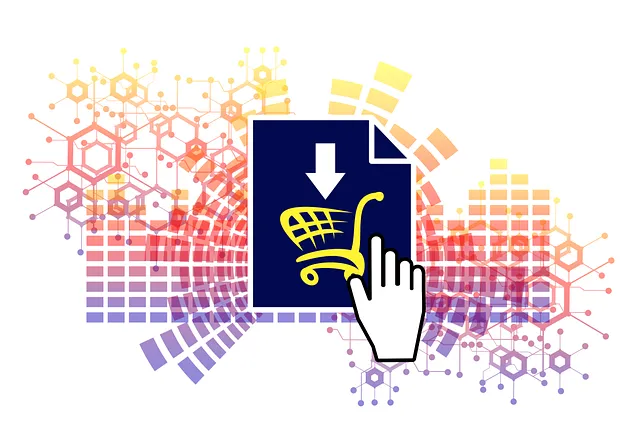2023 has highlighted the critical need for robust cybersecurity measures, particularly with the rise in threats targeting non-profit organizations. Confidential Computing has emerged as a game-changer, safeguarding sensitive data processed by CPUs from exposure to even cloud service providers. This advanced security technology is now essential for these entities, protecting donor information and other confidential data, which is increasingly important as they expand their operations internationally. For online real estate transactions, Confidential Computing offers a high level of security, ensuring that financial and personal data remain private and secure during computational processes. It's an indispensable tool for non-profits to maintain trust with contributors and comply with stringent privacy standards. Homeowners and investors engaging in online property transactions are advised to prioritize platforms that adopt Confidential Computing, as it aligns with international best practices in data protection and ensures the integrity of transactions against cyber threats. This technology is a cornerstone for secure online exchanges, providing peace of mind by encrypting transaction details and making it a critical component for safe and confidential online real estate activities worldwide.
Navigating the real estate market, whether as a homeowner or investor, has evolved significantly with the advent of online platforms. These digital marketplaces offer unparalleled access to properties globally but come with a critical caveat: security. This article delves into the nuances of secure online shopping in the real estate sector, emphasizing the pivotal role of confidential computing for non-profit organizations worldwide. We explore how this technology safeguards transactions, evaluate trustworthy platforms, and outline best practices to ensure safe online purchases and sales. Homeowners and investors alike will gain valuable insights into the digital realm’s secure navigation, empowering informed decisions in an increasingly virtual marketplace.
- Understanding Secure Online Shopping in Real Estate: A Primer for Homeowners and Investors
- The Role of Confidential Computing in Protecting Transactions for Non-Profit Organizations Worldwide
- Evaluating Trusted Platforms: Ensuring Safety and Privacy When Buying and Selling Property Online
- Best Practices for Safe Online Real Estate Transactions: A Guide for Prudent Buyers and Investors
Understanding Secure Online Shopping in Real Estate: A Primer for Homeowners and Investors

In an era where digital transactions are becoming increasingly commonplace, homeowners and real estate investors must navigate the complexities of secure online shopping with particular diligence. Understanding the mechanisms that underpin online security is crucial for safeguarding sensitive financial data and ensuring the authenticity of transactions in the real estate sector. One such mechanism gaining prominence is confidential computing. This technology enables non-profit organizations worldwide to process data with strong guarantees of privacy and integrity, even when cloud environments are shared. By leveraging hardware-based isolation techniques, it ensures that sensitive information remains protected from unauthorized access, even by the cloud service provider. For real estate investors and homeowners engaging in online marketplaces, this level of security is paramount, as it provides assurance that their transactions are not only confidential but also resilient against cyber threats.
When considering a property purchase or investment via an online platform, it’s essential to evaluate the security measures implemented by the service provider. Look for platforms that not only offer robust encryption and secure data handling practices but also utilize advanced technologies like confidential computing. This will help in preventing breaches where sensitive information could be exposed during a transaction. By choosing services with these security features, homeowners and investors can transact with greater confidence, knowing that their financial commitments are protected from potential cyber risks. It’s through such diligence that one can harness the convenience of online shopping while maintaining the integrity of their real estate ventures.
The Role of Confidential Computing in Protecting Transactions for Non-Profit Organizations Worldwide

In an era where cyber threats loom large, non-profit organizations worldwide are increasingly reliant on secure online systems for transactions. Confidential computing emerges as a pivotal technology in safeguarding these financial exchanges. It ensures that data processed by the CPU is kept secret from the host system, providing a robust layer of security. This isolation of sensitive operations and data within an encrypted environment is crucial for non-profits handling donor information and other confidential data. By leveraging this technology, these organizations can operate with greater confidence, knowing that their transactions are protected against potential breaches, even as they scale their global operations. The integration of confidential computing not only fortifies the security framework but also fosters trust among contributors, which is paramount for the sustainability and credibility of non-profit entities in today’s digital landscape.
The adoption of confidential computing by non-profit organizations worldwide underscores a significant commitment to data protection and privacy. This approach aligns with stringent compliance requirements and offers a level of security that transcends traditional encryption methods. It enables these organizations to process sensitive data, such as donor details and financial contributions, in a trusted environment that is impervious to unauthorized access or tampering. As non-profits increasingly rely on online platforms for fundraising and operational activities, the role of confidential computing becomes increasingly indispensable, offering a shield against the ever-evolving cyber threats that could compromise their vital missions.
Evaluating Trusted Platforms: Ensuring Safety and Privacy When Buying and Selling Property Online

When delving into online property transactions, both homeowners and real estate investors must prioritize the evaluation of trusted platforms to ensure a secure exchange. The digital realm offers a plethora of marketplaces for buying and selling property; however, not all are created equal in terms of safety and privacy measures. It is imperative to select platforms that employ robust security protocols. One such innovation is confidential computing, which has gained traction globally, particularly among non-profit organizations. This technology ensures that sensitive data involved in the transaction remains protected throughout the process, even during computational operations. By leveraging hardware-based security measures, confidential computing safeguards against unauthorized access and data breaches, providing peace of mind for all parties involved. For homeowners and investors, this means that their personal information and transaction details are shielded from cyber threats, allowing for a more secure and private online shopping experience. When vetting platforms for property transactions, consider those that advertise confidential computing capabilities as a cornerstone of their security infrastructure, thereby aligning with the best practices in data protection for online real estate exchanges worldwide.
Best Practices for Safe Online Real Estate Transactions: A Guide for Prudent Buyers and Investors

When engaging in online real estate transactions, prudent buyers and investors must prioritize security to safeguard their financial interests and personal information. A cornerstone of this security is leveraging confidential computing technologies, which ensure that data processing occurs within a secure and isolated environment. This means that sensitive information, such as transaction amounts, buyer identities, and property details, remains encrypted both in transit and at rest, accessible only to authorized parties. By adopting this approach, non-profit organizations worldwide can provide a trustworthy platform for online real estate dealings, thereby reducing the risk of data breaches and unauthorized access.
In addition to confidential computing, due diligence is critical. This includes verifying the authenticity of the property listing, understanding the legal implications of the transaction, and ensuring compliance with local and international regulations. Buyers and investors should utilize reputable online platforms that offer secure payment methods, such as those using blockchain technology or escrow services. These platforms often provide additional layers of security, including multi-factor authentication and real-time monitoring to detect and prevent fraudulent activities. By combining advanced technologies with meticulous verification processes, buyers and investors can engage in safe online real estate transactions with greater confidence, regardless of their geographical location.
In conclusion, the landscape of real estate transactions has evolved significantly with the advent of secure online shopping platforms. For homeowners and real estate investors alike, understanding the underpinnings of confidential computing is paramount in safeguarding sensitive data during these digital exchanges. By evaluating and utilizing trusted platforms that prioritize privacy and security, buyers and sellers can engage in transactions with greater confidence. Embracing best practices for online real estate purchases, including due diligence and verifying platform credibility, ensures a secure experience. As non-profit organizations worldwide leverage confidential computing to protect their critical operations, the lessons learned from this sector can inform and enhance the security measures taken by individual investors and homeowners in the realm of digital real estate transactions. With vigilance and the adoption of robust security protocols, the future of online real estate shopping is poised to be both efficient and secure.
